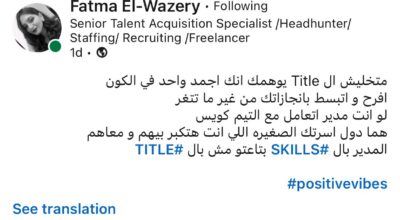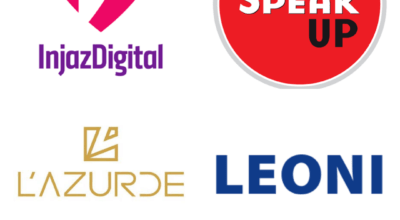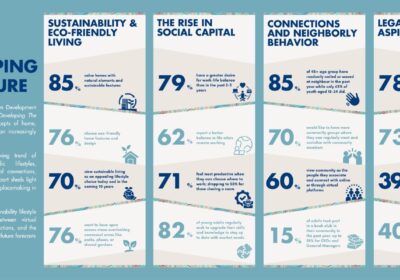LifeUP is what one would call a wellness center. But the label and its associations don’t reflect their eccentricity in the market. The story of Dalya, however, does just that. When she approached LifeUP, she was a woman in her forties who always dreamed of becoming a ballerina. Having reached that age without a background in the dance form, she was massively held back.
“The French and the Russians basically invented ballet. Their schools will tell you that if you want to become a ballerina, then you need to start as a child. But that’s not the only way,” explained Sammer Elkladious, a Cairo Opera House ballerina and one of the co-founders who teach ballet at LifeUp. She helped take Dalya from being doubtful that she could ever make it as a ballerina to confidently climbing up the stage and performing wonderfully in her first ever recital. This experience led Dalya to join the LifeUP team and encourage all the aspiring ballerinas who feel like they’ve missed the boat to jump on board.

Via 925
“The problem arises when you ask adults to train as ballerinas the same way children do. Of course they’ll struggle,” explained Elkladious. “You have to work on their flexibility, fitness, strength and coordination among other things. Only then would they have a real chance. And this is what I studied in the American classical standard ballet,” she elaborated. This American way successfully managed to train adults who have absolutely no background to become professional ballerinas, but it is still a rarity in Egypt. And Elkladious has acquired numerous degrees to become a better adult ballet instructor. She is currently finishing a masters degree on Kinesiology and injury prevention that will help her rehabilitate injured ballerinas to return to their level prior to the injury. This prioritization of accreditations and certifications is spread across all LifeUp’s other service lines which include visual arts and music.
Walking into LifeUP’s main space might make it seem like the dream work place. But Roni Barsoum, the co-founder and the CEO, chuckled when I suggested that. “It can be very stressful and it’s a tricky business,” he explained. “It’s not easy to convince people that art should not be treated as something secondary to our lives. It’s a great channel for us to express ourselves and understand who we truly are. It’s essential.”

Via 925
“Since we put a lot of effort into personalizing the LifeUP experience, achieving the customer satisfaction we aim for is quite challenging,” said Dina Waguih, LifeUP’s marketing and communications consultant, when I asked her about the challenging parts of her position. Waguih worked in PR, Media and several NGOs before landing in LifeUP. “But the beauty of working here is that it is an unusual place for a marketer and every day is surprising. Working here helps me discover my talents and skills.”
“Helping people build their lives and their character is one of my major passions in life,” said Barsoum who kicked off his career in training and development after graduating with a degree in architecture. “We think of LifeUP as a being that strives to help people enhance their lives,” he added. His dream is to grow LifeUP into a an art school that relies on experiential learning and meticulously crafted curricula to help integrate arts in our lives.




























